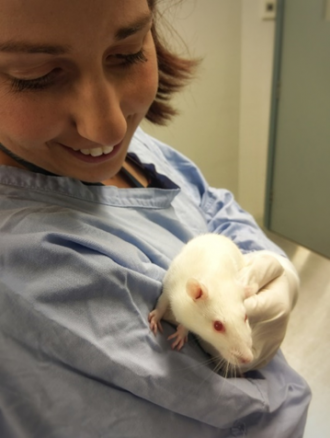Media Release
From: Australian and New Zealand Laboratory Animal AssociationAnimal research: It’s time to be more open
Veterinarians and technicians who care for animals used in medical and veterinary research overwhelmingly believe scientific institutions should be more open about their use of animals. A survey of more than 150 people working in animal care has found that 87 per cent believe research institutions in Australia and New Zealand should be more open about their research involving animals.
The survey also found strong support for a public pledge committing Australian and New Zealand institutions to greater openness.
Speaking at this week’s conference of the Australian and New Zealand Laboratory Animal Association (ANZLAA) in Perth, veterinarians Dr Malcolm France and Dr Jodi Salinsky said that 87 per cent of respondents indicated they wanted research organisations to be more open and would support the development of an ‘openness agreement’ similar to the UK’s successful Concordat on Openness on Animal Research. The Concordat has seen over 120 of the UK’s top scientific bodies implement initiatives to give the public a better idea of what actually happens in an animal research setting. Similar agreements are now in place in Spain and Portugal, with Belgium and Switzerland likely to have agreements in place by the end of 2019.
“Although several other countries have their own version based on the UK model or are actively working on it, we are lagging well behind in Australia and New Zealand,” said Dr France. “There are definitely some organisations that have been commendably proactive about openness in this part of the world, but most are still hesitant and there is nothing in place at a national level to encourage greater openness.”
Drs France and Salinsky agreed that while animal research may be ethically contentious, the UK Concordat has seen some impressive efforts to present the public with better information to draw their own conclusions. Institutions signing up to the Concordat typically have a website giving details of the number and species of animals they use and then provide crucial context by explaining the goals of the research and how animals are cared for. Some have gone much further with initiatives like virtual tours of animal facilities or public open days.
The survey also found the respondents believed that the public don’t realise how much is done to support the welfare of animals and that there is much false information that needs correcting.
Dr France said “a sad consequence of the lack of openness is the negative impact it has on those who provide day-to-day care for the animals. Most animal technicians choose their vocation because they love animals. Even if they have mixed feelings about animal research, they are determined to see the animals receive the best possible care. Unfortunately, they are often reluctant to talk about their work because they fear a negative reaction based on public misunderstanding and outdated images in anti-vivisection campaign material.”
Dr Salinsky agreed adding that “Greater openness would help give well-earned recognition to these dedicated individuals, increase public understanding of animal research and highlight the effort made to ensure the welfare of the animals.”
Notes to editors:
Research on animals is highly regulated around the world. In Australia, research that involves the use of animals must be conducted according to the Australian Code for the Care and Use of Animals for Scientific Purposes which is enforced by State and Territory legislation. In New Zealand, animal research is regulated under the Animal Welfare Act and must be conducted according to an approved Code of Ethical Conduct. In both countries, any research project that will involve animals must first be approved and is then subject to ongoing monitoring by an Animal Ethics Committee, the membership of which must include veterinarians, laypersons and animal welfare advocates external to the institution.
The principle of ‘The 3Rs’ (Reduction, Replacement and Refinement of animals used in research) are emphasised in the regulatory framework governing animal research in Australia and New Zealand. Although there are some alternatives to using animals, they are not yet sophisticated enough to replace animals in many scientific studies.



